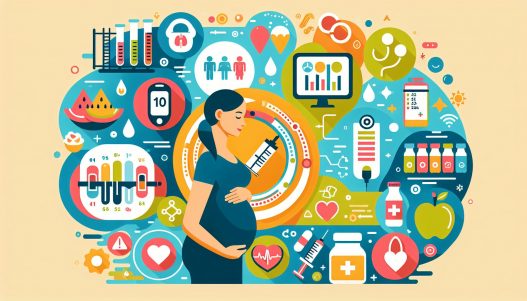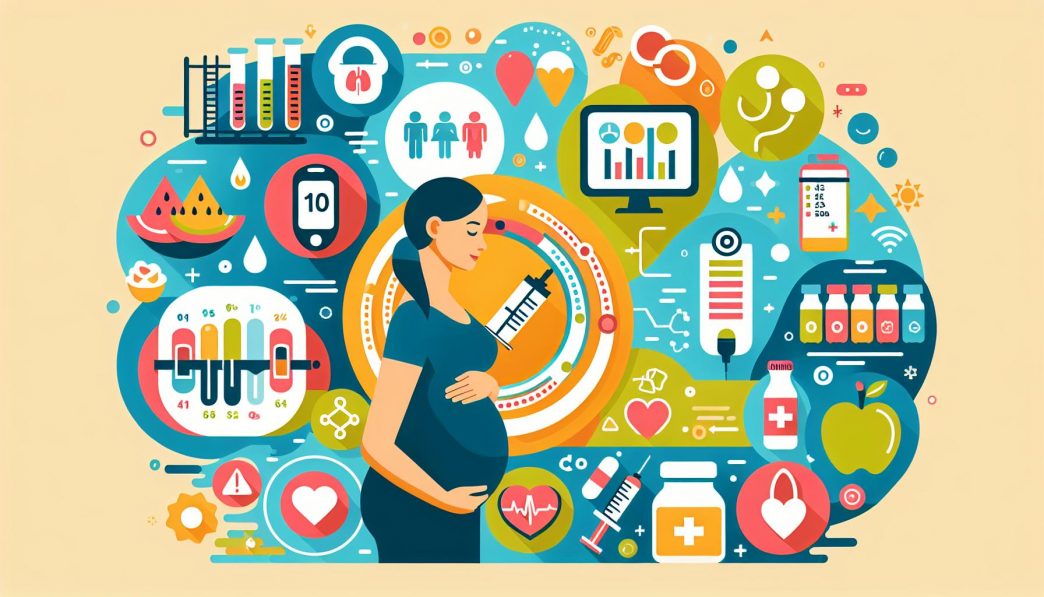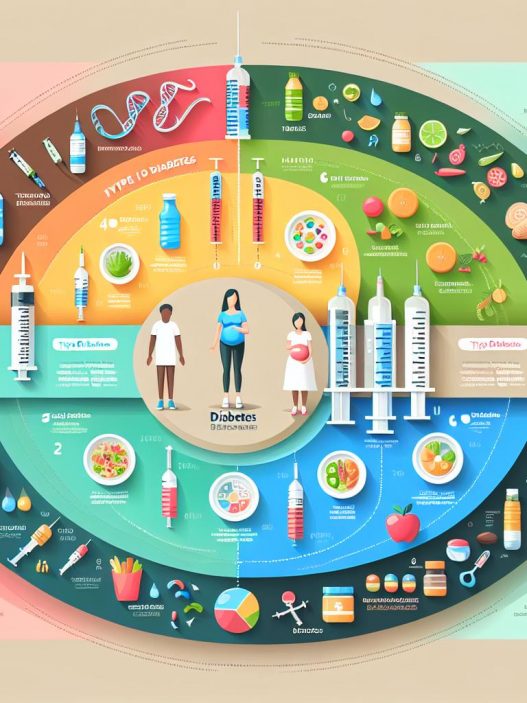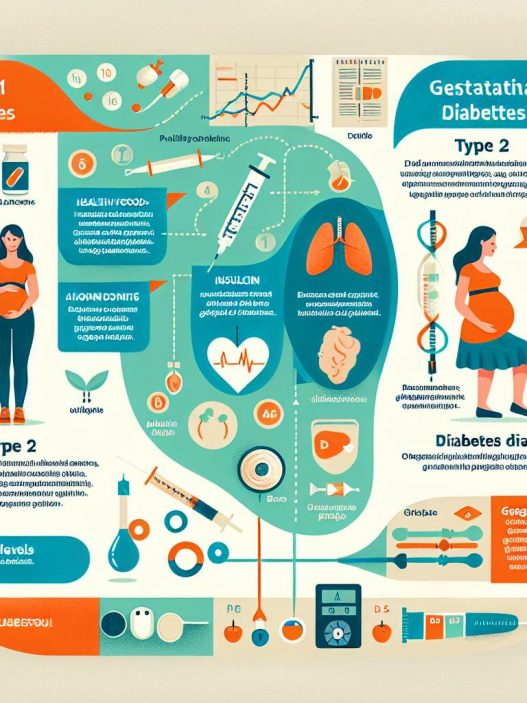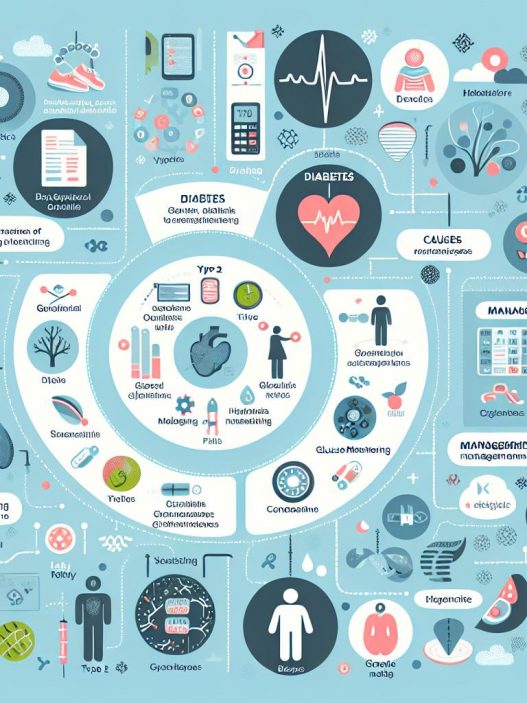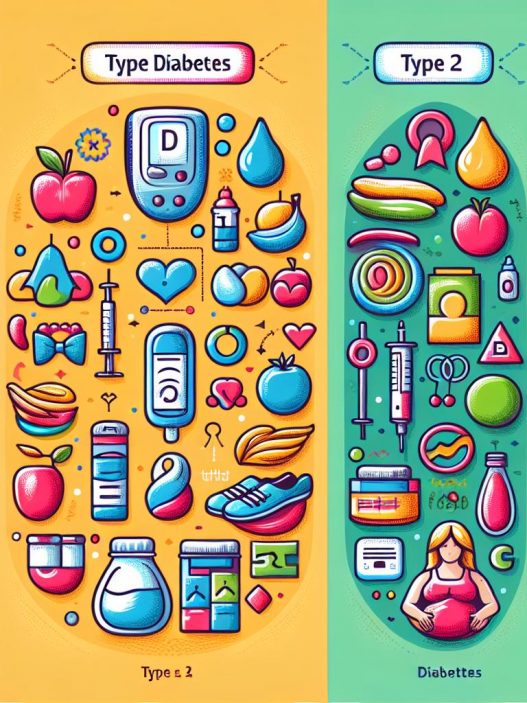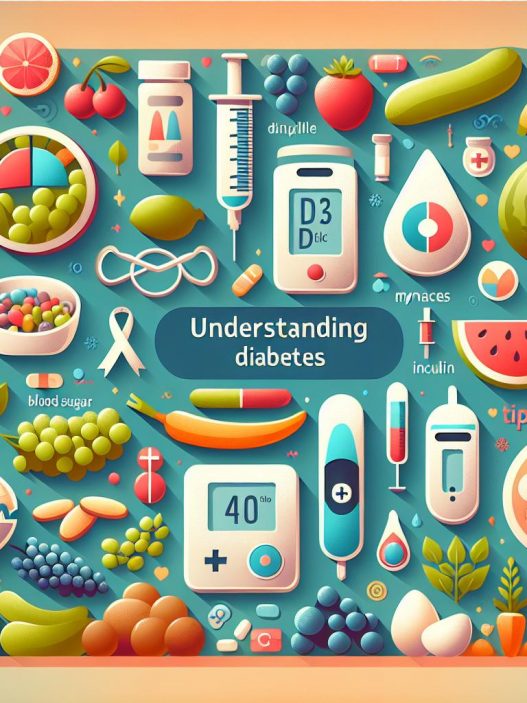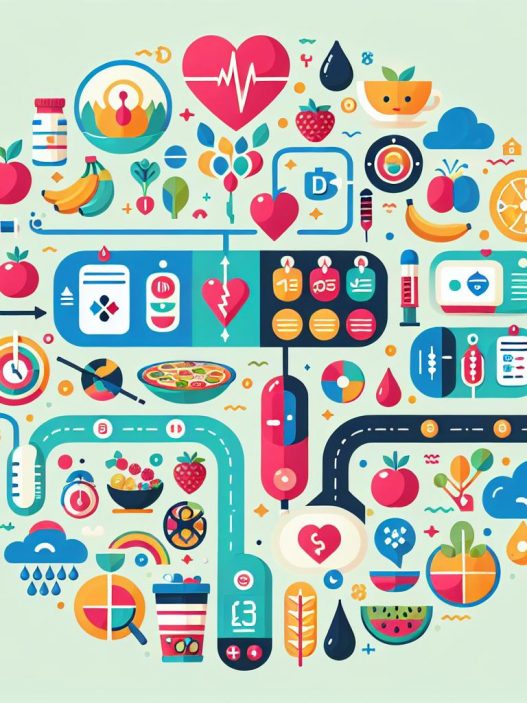# Navigating the Diabetes Spectrum: Understanding Type 1, Type 2, and Gestational Diabetes
Diabetes is a complex and multifaceted condition that affects millions of individuals globally. With various types that each present unique challenges and management strategies, understanding the diabetes spectrum is essential for effective health management. This article offers a deep dive into Type 1, Type 2, and Gestational diabetes, illuminating their differences, symptoms, treatments, and more, while also providing practical tips for living well with diabetes.
Understanding Diabetes: The Foundation of the Condition
Diabetes mellitus is classified into several types, each defined by a distinct physiological mechanism and varying implications for health management. At its core, diabetes is characterized by the body’s inability to produce or effectively use insulin, a hormone crucial for regulating blood sugar levels. When the body’s glucose levels are not properly managed, it can lead to a multitude of health complications ranging from cardiovascular disease to nerve damage.
The primary types of diabetes—Type 1, Type 2, and Gestational—highlight the diverse aspects of this condition. Each type originates from different causes and presents particular manifestations, necessitating tailored approaches for diagnosis, treatment, and lifestyle modifications. Understanding these differences is critical not only for those diagnosed but also for family and friends who support them.
The Nuances of Type 1 Diabetes: Autoimmunity and Insulin Dependency
Type 1 diabetes (T1D) is an autoimmune condition where the immune system mistakenly attacks insulin-producing beta cells in the pancreas. This results in little to no insulin being produced, leading to elevated blood sugar levels. Although it can occur at any age, Type 1 diabetes is primarily diagnosed in children and young adults, which is why it is often referred to as juvenile diabetes.
Symptoms of Type 1 diabetes often appear suddenly and can include excessive thirst, frequent urination, extreme fatigue, and blurred vision. Individuals with T1D require lifelong insulin therapy, either through injections or an insulin pump, to regulate their blood sugar levels effectively. Management of Type 1 diabetes is a continuous process, encompassing regular blood sugar monitoring, meal planning, and physical activity.
Living with Type 1 diabetes also requires education and support, both emotionally and socially. Many individuals benefit from connecting with diabetes support groups or healthcare teams that can provide resources and encouragement. The development of technology, such as continuous glucose monitors and artificial pancreas systems, is promising, offering improved management tools for those navigating this challenging condition.
Type 2 Diabetes: Lifestyle Factors and Management Strategies
Type 2 diabetes (T2D) is the most common form of diabetes, accounting for about 90-95% of all diabetes cases. It typically develops when the body becomes resistant to insulin or when the pancreas cannot produce enough insulin. Unlike Type 1 diabetes, T2D usually has a gradual onset and is often associated with lifestyle factors such as obesity, physical inactivity, and poor dietary choices.
Symptoms of Type 2 diabetes can be subtle and may go unnoticed for years. Common indicators include increased thirst, frequent urination, fatigue, and blurred vision. The prevalence of T2D is rising, particularly in younger populations, largely due to an increase in sedentary lifestyles and unhealthy eating patterns.
Management of Type 2 diabetes often begins with lifestyle modifications, including weight loss, improved nutrition, and increased physical activity. Many individuals may also require medications, such as metformin, to help control blood sugar levels. Regular monitoring of blood glucose, along with periodic consultations with healthcare providers, is crucial for long-term success. For those struggling to maintain stable glucose levels through lifestyle changes alone, certain individuals may ultimately require insulin therapy as part of their management strategy.
Gestational Diabetes: Understanding the Risks and Complications
Gestational diabetes occurs during pregnancy and typically resolves after the baby is born. It is characterized by elevated blood sugar levels that develop due to hormonal changes and increased insulin resistance during pregnancy. While any pregnant woman can develop gestational diabetes, certain factors increase the risk, including obesity, a family history of diabetes, and being over the age of 25.
The symptoms of gestational diabetes can also go unnoticed, which is why screening is essential. Most obstetricians conduct routine glucose screenings at around 24-28 weeks of pregnancy. If left unmanaged, gestational diabetes can lead to complications for both the mother and the baby, such as preeclampsia, high birth weight, or an increased risk of developing Type 2 diabetes later in life.
Management of gestational diabetes often focuses on healthy eating, regular physical activity, and blood sugar monitoring. In some cases, insulin may be needed to regulate blood sugar levels effectively. After giving birth, women who had gestational diabetes need to have ongoing blood sugar monitoring, as they are at an increased risk for developing Type 2 diabetes in the future.
The Importance of Education in Diabetes Management
Education plays a pivotal role in the effective management of all types of diabetes. Understanding the specific characteristics, treatments, and lifestyle adaptations required for each diabetes type empowers individuals to take control of their health. Numerous resources are available, including diabetes education programs, online courses, and informational materials from healthcare providers and organizations like the American Diabetes Association.
Moreover, self-management training can enhance an individual’s ability to monitor their blood sugar levels, recognize symptoms, and respond appropriately to fluctuations. Participating in local support groups can also be beneficial, as shared experiences provide not only knowledge but emotional support and camaraderie among those with similar challenges.
Dietary education is essential, as nutrition directly affects blood sugar control. Registered dietitians specializing in diabetes can help individuals plan balanced meals tailored to their specific needs, making it easier to manage their condition and maintain a healthy lifestyle.
The Future of Diabetes Care: Innovations and Research Trends
As diabetes research progresses, innovations in treatment and management continue to emerge. Advances in technology are making diabetes management easier, more efficient, and more personalized. Continuous glucose monitors (CGMs) allow for real-time tracking of blood sugar trends, helping individuals make informed decisions about their health. Insulin pumps have also become increasingly sophisticated, offering advanced delivery options that adapt to fluctuating needs throughout the day.
Research into potential diabetes vaccines and artificial pancreas systems has shown promising results, signaling a future where diabetes management may become even less burdensome. Investigations into genetic factors and early detection methods also hold the potential to significantly change how diabetes is diagnosed and treated.
Furthermore, personalized medicine is gaining traction, as healthcare providers increasingly recognize that treatment strategies should be tailored to the individual’s unique profile, lifestyle, and preferences. As we look to the future, the combination of education, technology, and ongoing research will pave the way for improved diabetes management and quality of life for those affected by this condition.
In conclusion, navigating the diabetes spectrum requires a comprehensive understanding of its different forms, implications, and management strategies. By being informed, individuals with diabetes or those at risk can take active steps toward leading healthier lives, reducing complications, and improving their overall quality of life. Whether it’s Type 1, Type 2, or Gestational diabetes, knowledge is power in the fight against this pervasive condition.










